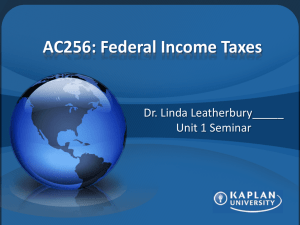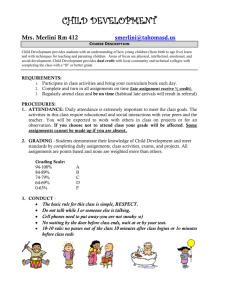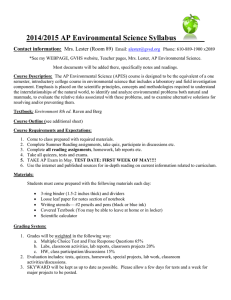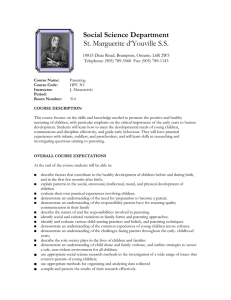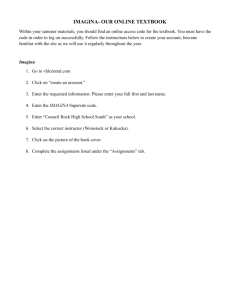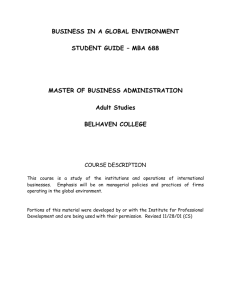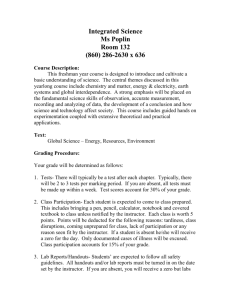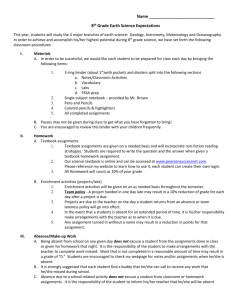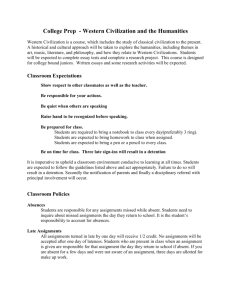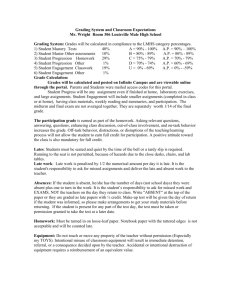PARENTING AND CHILD DEVELOPMENT
advertisement
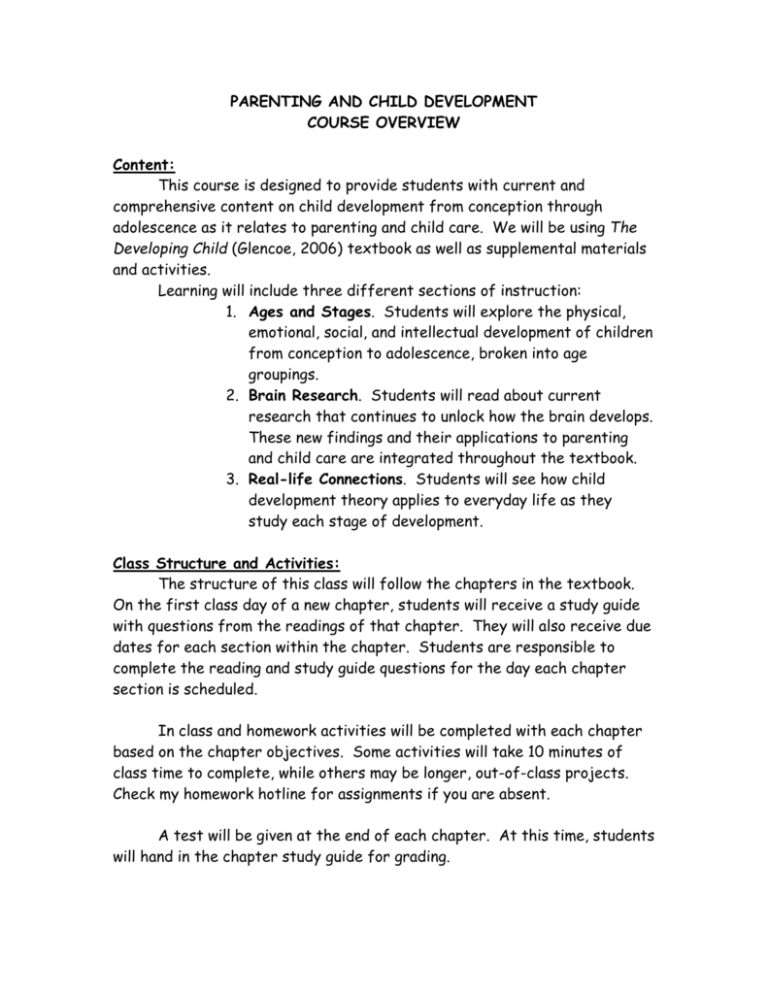
PARENTING AND CHILD DEVELOPMENT COURSE OVERVIEW Content: This course is designed to provide students with current and comprehensive content on child development from conception through adolescence as it relates to parenting and child care. We will be using The Developing Child (Glencoe, 2006) textbook as well as supplemental materials and activities. Learning will include three different sections of instruction: 1. Ages and Stages. Students will explore the physical, emotional, social, and intellectual development of children from conception to adolescence, broken into age groupings. 2. Brain Research. Students will read about current research that continues to unlock how the brain develops. These new findings and their applications to parenting and child care are integrated throughout the textbook. 3. Real-life Connections. Students will see how child development theory applies to everyday life as they study each stage of development. Class Structure and Activities: The structure of this class will follow the chapters in the textbook. On the first class day of a new chapter, students will receive a study guide with questions from the readings of that chapter. They will also receive due dates for each section within the chapter. Students are responsible to complete the reading and study guide questions for the day each chapter section is scheduled. In class and homework activities will be completed with each chapter based on the chapter objectives. Some activities will take 10 minutes of class time to complete, while others may be longer, out-of-class projects. Check my homework hotline for assignments if you are absent. A test will be given at the end of each chapter. At this time, students will hand in the chapter study guide for grading. Special Project: During the fourth marking period, students will each be completing a special project based on what they have learned about children and their development. Each student will create a family literacy bag based on a popular children’s book. This bag will contain a copy of the book as well as a notebook of activities that a family could do after reading the book. At the end of the school year, the class will donate these literacy bags to a local agency for the use of students in our school district. Grading: Students will be evaluated using combinations of the following areas: Completion of class work Completion of homework and reading assignments Cooperation when working as a member of a group Rubrics and/or checklists for reports or projects Quizzes given to check reading assignments Tests given at the end of each chapter Students will be notified of the point value of an assignment when that assignment is given. Students who are absent will need to make up the missing assignments upon their return to class. If you are absent for 2 days, you then have 2 days to make up the assignment or test. See me if you feel that you have exceptional circumstances. Expectations: I expect: Students to come to class prepared with a pen or pencil. Students to bring their textbook every day. Students to stay on task and control their own behavior. Students to work together in groups and maintain a positive atmosphere of encouragement for fellow classmates. Appropriate class participation – you learn so much from each other! Mrs. Nancy Bodman Family and Consumer Science Department
